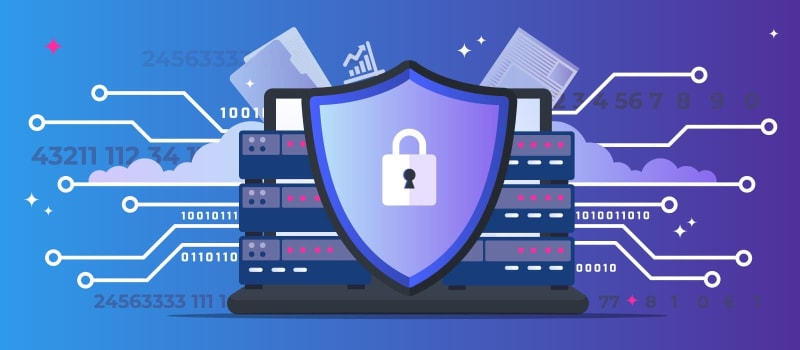Introduction to Blockchain Technologies
Blockchain technology has emerged as a groundbreaking innovation that has the potential to transform industries across the globe. Understanding the origin, purpose, and value of such a field is crucial to grasping its significance today.
Speaking in computer terms, Blockchain is a decentralized, distributed ledger technology that enables the secure and transparent recording, verification, and storage of digital transactions across a network of computers. Since its origin, it has revolutionized how people transact in the digital age. Along with the emerging methodologies of how technology can scale itself to serve the very purpose it was established for, cryptocurrency is giving birth to new ideologies adaptable to various conditions and environments.
Blockchain manages to achieve all this by leveraging cryptography and consensus algorithms to ensure the immutability, the core foundation of Blockchain, and its data integrity. With its decentralized foundation in place and intact, it can maintain a process flow without having any third parties interfere, thereby revolutionizing traditional systems and processes.
Blockchain Adoption and Market Trends
Blockchain Technologies being an emerging field has shaped and transformed how to market functions in terms of either doing day-to-day trading or long-term investments, both having their pros and cons.
Talking about facts and figures, the global blockchain market is expected to reach $39.7 billion by 2025, growing at a compound annual growth rate (CAGR) of 67.3% from 2020 to 2025. This aspect covers the reachability part of Blockchain, where people can actively participate in various public ledgers and help build a strong community amongst them. Companies of different sectors are involved as per PwC's 2020 Global Blockchain Survey, which stated that over 40% of the companies had adopted such technologies in their regular operations.
With the latest updates, studies have revealed that the banking and finance sector was one of the first adopters of such technologies, making transactions much smoother and more secure. This has led to 77% of financial institutions planning to adopt Blockchain by the end of this year. Going company-specific, Deloitte issued a survey where 53% of people believe Blockchain would disrupt the workflow, while 83% saw compelling use cases for the technology.
This leads us to believe that Blockchain is yet another one of the technologies which can shape the upcoming market and drive trends in a general direction of success.
Blockchain Scalability and Performance
Security and Privacy are two of the most important aspects to consider while making significant transactions on a public ledger. With this evolving technology in place, it is crucial to have the security and privacy aspects implemented to ensure a safe and secure way of making reliable transactions on a server.
In Blockchain networks, cryptography secures the transactions, making them resistant to tampering and fraud. This further makes them "fault-tolerant" systems. Similarly, in Blockchain, there is a concept of smart contracts implemented recently in many public ledgers. In layman's terms, a smart contract is a computer program or a transaction protocol intended to automatically execute, control or document events and actions according to the terms of a contract or an agreement. As of July 2022, stated by 101Blockchains, the total number of smart contracts deployed on Ethereum reached 1.45 million. Smart contracts help automate the execution of an agreement so that all participants can be immediately sure of the outcome without any intermediary's involvement in time loss.
To sum up, Blockchain takes care of the security and privacy aspect by assigning smart contracts to ensure secure and fault-tolerant transaction-making processes and implementing hashing algorithms which give a unique hash id to each transaction made by each user.
Blockchain Security and Privacy
Security and Privacy are two of the most important aspects to consider while making heavy and big amount transactions on a public ledger. With this evolving technology in place, it is crucial have the security and privacy aspects in place and implemented to ensure a safe and secure way of making reliable transactions on a server.
In Blockchain networks, cryptography is what secures the transactions, making them resistant to tampering and fraud. This further makes them "fault-tolerant" systems. Similarly, in blockchain, there is a concept of smart-contracts which was implemented recently in many of the public ledgers. A smart contract, in layman terms, is a computer program or a transaction protocol that is intended to automatically execute, control or document events and actions according to the terms of a contract or an agreement. As of July 2022, stated by 101Blockchains, the total number of smart contracts deployed on Ethereum reached 1.45 million. Smart contracts help automate the execution of an agreement so that all participants can be immediately certain of the outcome without any intermediary's involvement of time loss.
To sum up, blockchain takes care of the security and privacy aspect by assigning smart contracts to ensure secure and fault-tolerant transaction making processes and implementing hashing algorithms which give a unique hash id to each transaction made by each user.
Conclusion
Blockchain Technologies are revolutionizing industries and reshaping how we interact with digital systems. The decentralized nature of Blockchain, coupled with its inherent security and transparency, has opened doors to new possibilities. Blockchain has proven its worth beyond cryptocurrencies, finding applications in supply chain management, healthcare, finance, and more.
Blockchain's immutability and trust offer a foundation for innovative solutions like smart contracts, decentralized finance (DeFi), and nun-fungible tokens (NFTs). As the technology continues to evolve, scalability and interoperability challenges are being addressed, paving the way for broader adoption. With ongoing advancements and increased awareness, blockchain technologies will continue shaping the digital landscape, driving efficiency, trust, and accountability in various sectors.








Top comments (0)